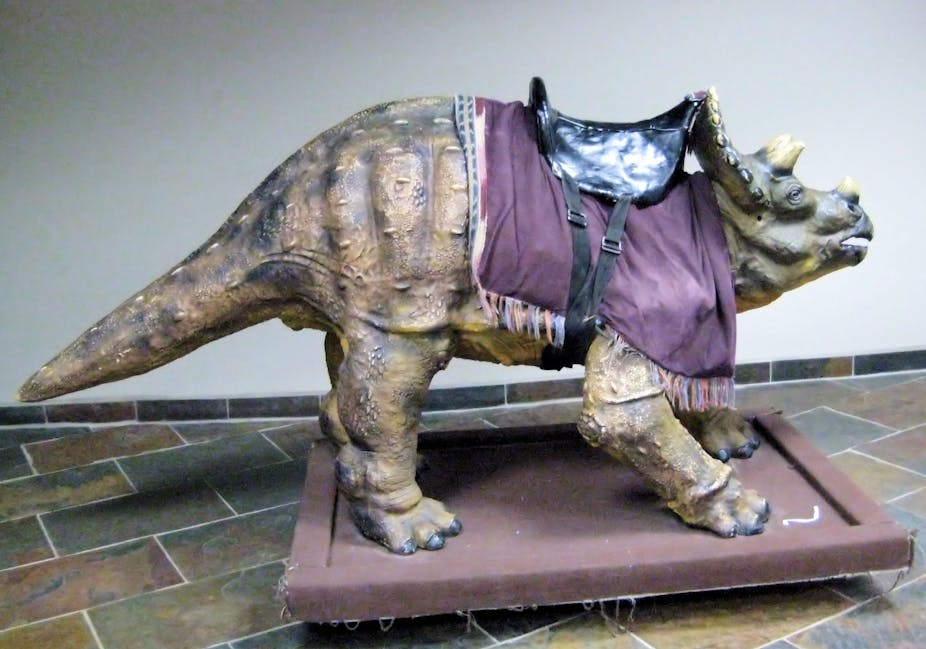The Conversation organised a public question-and-answer session on Reddit in which Jeremy Pritchard, senior lecturer in biology at the University of Birmingham, explained the science of evolution and tackled the contentious issue of science and religion. Here are curated highlights.
Evolution
What do you find to be the most difficult challenge to evolution to explain to a layperson?
Probably avoiding implying (intelligent) design and therefore purpose. The great fit of adaptations to function often leads us to use language that doesn’t help get to the fundamentals. For example, a bird’s wings are not designed for flight, well they may look designed but they are there because birds’ ancestors that had less efficient wings got eaten or get less food and therefore left fewer descendants.
The other thing that is tricky to explain is getting over the fact that individuals don’t evolve, populations do.
The phrasing used in discussing evolution often implies action from the subject, when in reality the subject has no active role in the evolutionary process (as in the Lamarckian view falsely pushed by some). How much does this figure into your experience?
I think this is a big issue. It harks back to Lamarckian views and even ideas of progress and the Greek Great Chain of Being, implying there is some sort of hierarchy in nature, that some things are better than others (whereas in reality all species alive today are equally successful). It is part of the idea that organisms are active in their own evolution. It comes back to my previous comment that it is not individuals that evolve, but populations though the process of differential survival.
How does evolution apply to humans in a modern context?
Steve Jones of University College London is adamant that we are no longer evolving. Differential survival and differential reproductive success are no longer as much to do with our genes and more to do with how we are able to control out environment. Our “complex intelligence” is, however, a genetically programmed adaptation that allows us to do this. The transmission of ideas and adaptations will be more through cultural rather than genetic means.
There are still examples of evolution in human populations. Resistance to AIDs, for example, changes the gene pool as some die and some survive. However further speciation is unlikely as the global human population is largely mobile and interconnected, isolation of gene flow for any length of time is unlikely.
What evolutionary adaption do you find most astounding?
The mind/behaviour altering adaptation of parasites is great: as they manipulate their primary and secondary hosts so than one eats the other and the parasite life cycle goes on.
There must be quite a few, but what is your favourite example of evolution that you use in your teaching?
A recent really nice one comes from the lab of John Colbourne at the University of Birmingham. They have provided Jurassic Park-like evidence for evolution using resurrection biology. They are able to reanimate dormant water fleas (daphnia) that are more than 1,000 years old and show how modern populations have evolved to deal with phosphorus from the agricultural revolution of the middle ages.
Creationism
Why do you think the tension between creationism and evolution teaching exists?
I think creationists have a problem. If they accept the bible as literally true then it leads them to reject the conclusions of science, which are evidence-based. Science cannot incorporate random supernatural interventions into the natural world. If you teach this as a possibility, then predictions and extrapolations are no longer possible. You can’t trust the data.
I think understanding of the issues in creationism can be useful to science but it has to be about ideas and history, not the process of science. I suspect that for the more radical creationists it is a matter of faith, and faith is something you can use in the face of contrary evidence. Maybe they want to teach it because their God tells them they have to. In my mind there is no conflict: science is about evidence and evaluation of facts, religion is about faith and revelation.
Why do you think this ‘debate’ has become such a heated topic?
I think the conflict between science and creationism need not be aligned with any conflict between science and religion. The latter can co-exist but the former cannot.
Religion is a personal thing. Science is a series of testable facts that give us a theory of how the world works and can be modified or altered as new facts or interpretations come along. Any scientific theory is testable and can be disproved including evolution. Experiments cannot be done to disprove a faith-based situation such as creationism. We are guilty of presenting science as somehow complete (although I think the media’s lack of knowledge about how we deal with uncertainty in science is partly to blame). Not knowing something is a strength of science, it is after all a process not a body of knowledge.
Why do you think that it is so hard for many other Christians to find and follow a similar line of reasoning to reconcile the perceived expanse between their faith and evolution/history of the universe?
The bible comes from a long tradition of Jewish allegorical story telling and isn’t meant to be taken literally. I think the issue is with people who have entrenched fundamental positions. Why it has to be an either/or situation, I don’t know, maybe it depends how they came upon their belief system.

